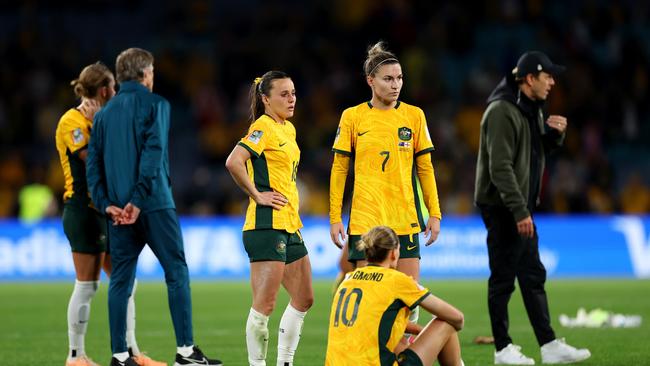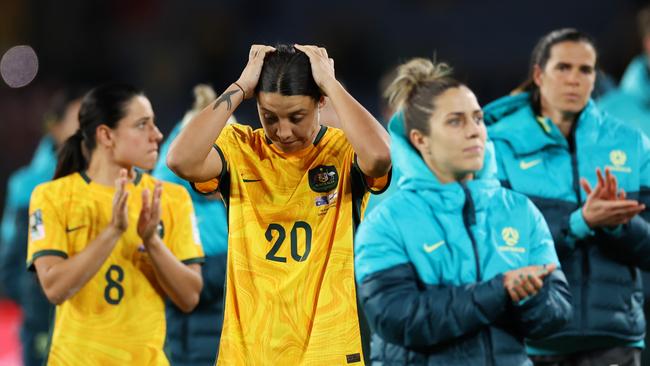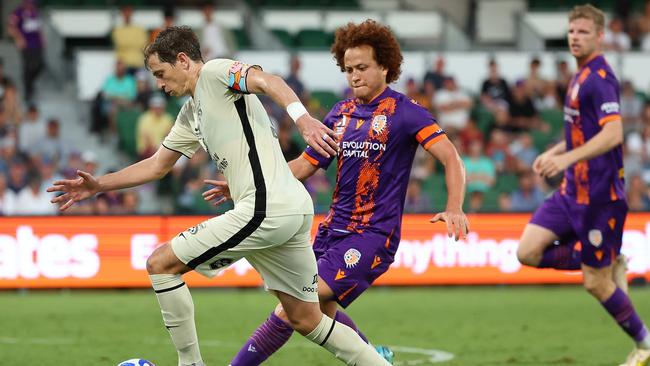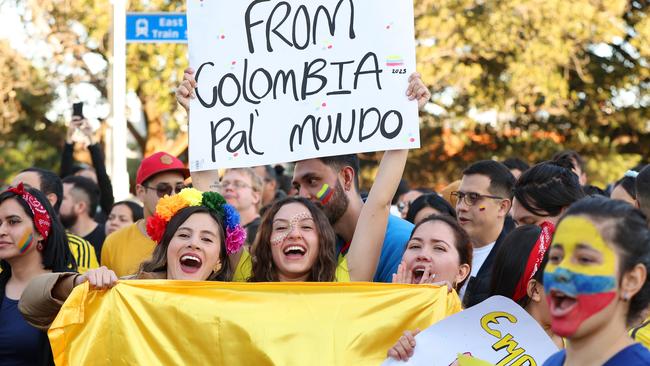FIFA Women’s World Cup: Robbie Slater on Matildas legacy and fixture change Football Australia must make
The Matildas fever which has swept Australia threatens to be wasted unless an urgent change is made, writes ROBBIE SLATER.

Women's Football
Don't miss out on the headlines from Women's Football. Followed categories will be added to My News.
The party is over, so what next?
The Matildas have had unbelievable success this World Cup and shown everyone in Australia what football can do as a sport.
No other code in this country could pull off what the Matildas have achieved in this past month. The record TV ratings — 7.1 million people for the semi-final is more than double State of Origin, NRL and AFL grand finals – is a message to politicians and big business in this country that football is THE growth sport.
It is already the No. 1 junior participation sport in Australia, now we’ve seen first hand exactly how football can unite a country.

But what comes next in Football Australia’s legacy action plan will determine the future of this sport and whether this Matildas success story has any lasting impact at all.
The first thing they must do, and this is an absolute no-brainer, is reschedule the Matildas next home games.
The next time the Matildas play in Australia after this World Cup is three Olympic qualifier events at Perth’s HBF Park.
So we’re going from a sold out 80,000 Stadium Australia in Sydney, sold out 40,000 plus games in Brisbane and Melbourne, to a 20,000 capacity venue on the other side of the country.
What an own goal.

There is nothing wrong with playing a game in Perth, but why not try to fill Optus Stadium and why would you play all three in the same city?
Football needs to stop apologising for every decision they make and giving all three games to Perth just feels like compensation for not taking any Matildas World Cup games to Western Australia.
But now is not the time to aim to please. Now is the time to think big and aim big.
We should capitalise on the mood of the country for the Matildas and try to sell out every game in the biggest stadiums in the biggest cities.
It’s an eternal problem that football faces. How to capitalise on the short-term momentum of big events when our best players play overseas for the majority of the year.
As it stands Sydney, Brisbane and Melbourne may not get a chance to see Sam Kerr play again for over a year. If we’re lucky we will have one more Olympic qualifier in February, but after that there is no room in the schedule until after the Paris Olympics.
There will be a lot of disappointed fans if they have to wait a year or more to experience this Matildas magic again.
Part of the battle in bringing players so far home for games is high performance management.
We’ve seen Football Australia schedule international matches overseas just to combat this travel problem but also, the clubs know when they release players back to Australia they’re not afforded the same world class facilities as they receive at club land.
That’s important for the clubs who pay the players’ wages because someone like Sam Kerr could play five games in 13 days if she suits up in all three Olympic qualifiers in Perth in October as well as her Chelsea duties.
It’s why it’s so important football gets the funding from governments to give these players, and our next generation players we are trying to develop into future Matildas and Socceroos, access to world class facilities in every state.

Did anyone else notice the Matildas had to borrow the Sydney Swans’ $70m government-funded high performance facility to get ready for the semi-final?
If we’re going to get serious about football in this country we need to realise the Matildas and Socceroos are like a massive party.
When the stadiums are full, the live sites are pumping and all the politicians want to be seen spruiking public holidays or getting photos and selfies, but when the music stops they all disappear.
We can argue about what Football Australia is doing wrong and right all day long, but how about everyone else starting to get serious about the importance of this game to this country.
You want this World Cup to produce a ripple effect that will be felt across the whole game.
And it starts by politicians realising just how important football is to Australia and treating our sport at least as equal as some of the other sports who get all the headlines every other day of the year.
More Coverage
Originally published as FIFA Women’s World Cup: Robbie Slater on Matildas legacy and fixture change Football Australia must make





